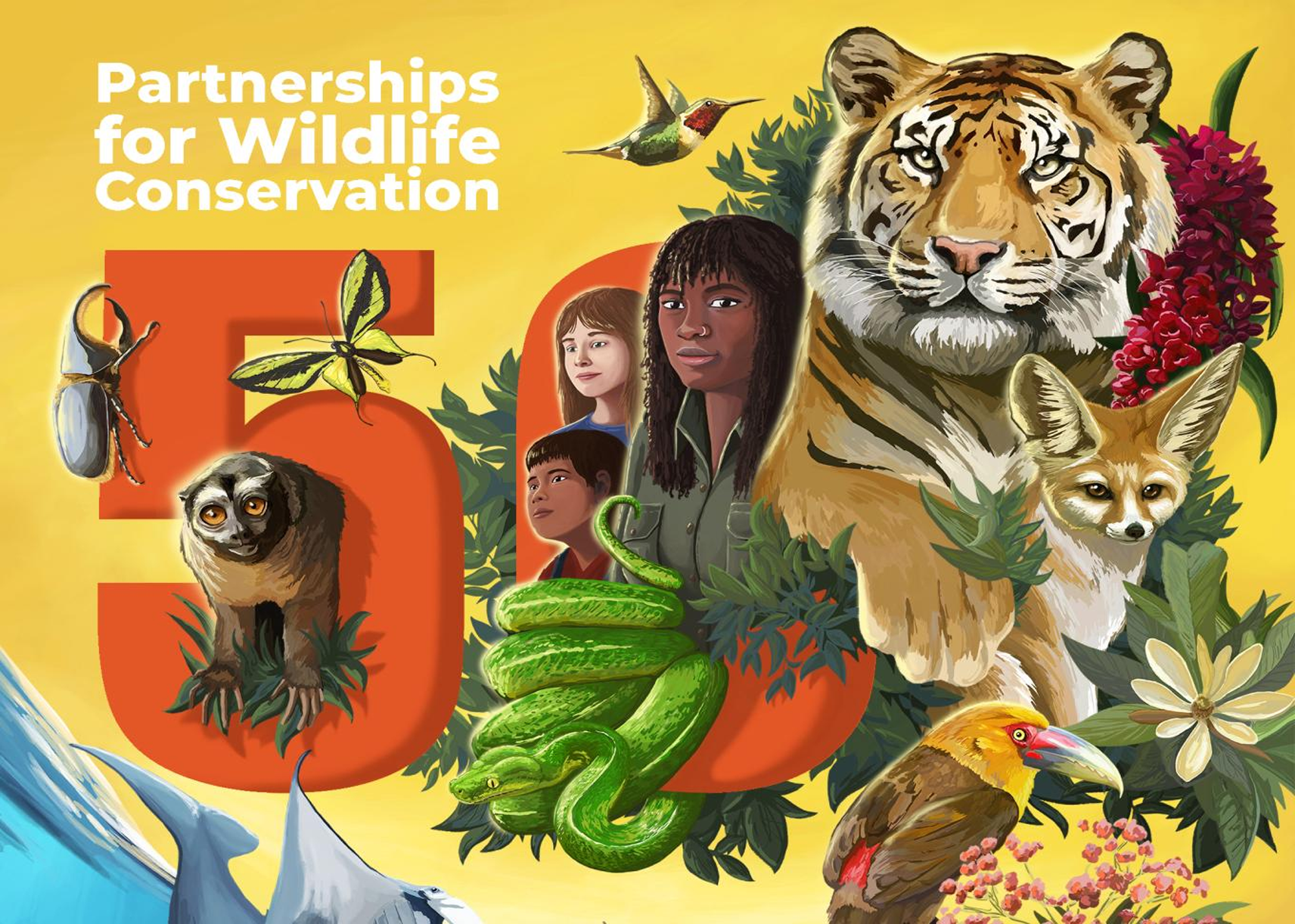On 20 December 2013, the United Nations General Assembly declared March 3rd – the day of signature of the Convention on International Trade in Endangered Species of Wild Fauna and Flora (CITES) in 1973 – as UN World Wildlife Day (WWD) to celebrate and raise awareness of the world’s wild animals and plants. This WWD also falls on the 50th Anniversary of CITES.
Today on World Wildlife Day, we reflect on our responsibility to protect the phenomenal diversity of life on our planet. This is also closely related to the UN Sustainable Development Goals (SDG) 1, 6, 12, 13 and 15, and their varied commitments to alleviating poverty, ensuring sustainable use of resources, and on conserving life on land.





“Human activities are laying waste to once-thriving forests, jungles, farmland, oceans, rivers, seas, and lakes. One million species teeter on the brink of extinction, due to habitat destruction, fossil fuel pollution and the worsening climate crisis. We must end this war on nature.”
– António Guterres, United Nations Secretary-General
Partnerships for wildlife conservation is a necessity. The world needs us ALL working together to save the precious ecosystems and the wildlife that live within them. APOPO has been working in partnership with Sustainable Agriculture Tanzania (SAT) to protect one of the most important ecosystems in Tanzania – the Uluguru Mountains. The Uluguru Mountains are part of the Eastern Arc mountain range that spread accross eastern Tanzania and Kenya. The Uluguru mountains contain at least 16 endemic vertebrate and 135 endemic plant species, with hundreds more shared only with forests in eastern Tanzania and Kenya. This degree of endemism is exceptional in tropical Africa, and the Uluguru Mountains are one of the 10 most important tropical forest sites for conservation on the continent.
With APOPO’s operational headquarters and training center being in Morogoro, in the foothills of the Uluguru Mountains, we saw a need in the face of a changing climate and could not ignore the destructive farming practices being used that were accelerating deforestation in this region. In the closed-canopy forest in the Eastern Arc Mountains, there is roughly the same number of amphibian species as the entire Democratic Republic of Congo! Just last week six new chameleon species were described.
HeroTrees Project
The HeroTREEs initial project plan was to simply plant trees, and recently this has expanded to include Syntropic Farming into the strategy. Syntropic Farming is an impressive regenerative farming practice, which relieves pressure on existing forests, supplements farmers’ incomes and teaches important sustainable farming methods, which will allow farmers to do more with much less land. The small-scale farmers in the mountain communities are taught to revitalize their land, so they plant trees alongside their crops and use smart organic agricultural skills that produce natural fertilizers. These skills lead to higher crop yields, increased income, and food security, and vitally the farmers are taught to build resilience to a changing climate and to share their experiences with the wider communities so that the HeroTREEs project can expand organically.
Much wildlife depends on the Uluguru Mountains for their existence and APOPO’s partnership with SAT is ensuring that habitats are restored and maintained so that biodiversity can continue to thrive. The HeroTREEs project not only plants trees, but also ensure transformation of local farming practices, which have been so damaging to the ecosystem in the past. As this year’s theme – ‘Partnerships for Wildlife Conservation’ – highlights, we need to work across governments, civil society, and the private sector to turn commitment into action.
How you can help:
- Support the HeroTREEs project in honor of #WWD2023
- Support the wildlife we love by donating to APOPO in honor of #WWD2023
- Follow us on social media to get news on our projects
- Get to know the animal and plant species under threat where you live, in your area or country, and find out more on the threats and challenges they and their habitats face, and what can be done to conserve them. Share this knowledge with your family and friends.



